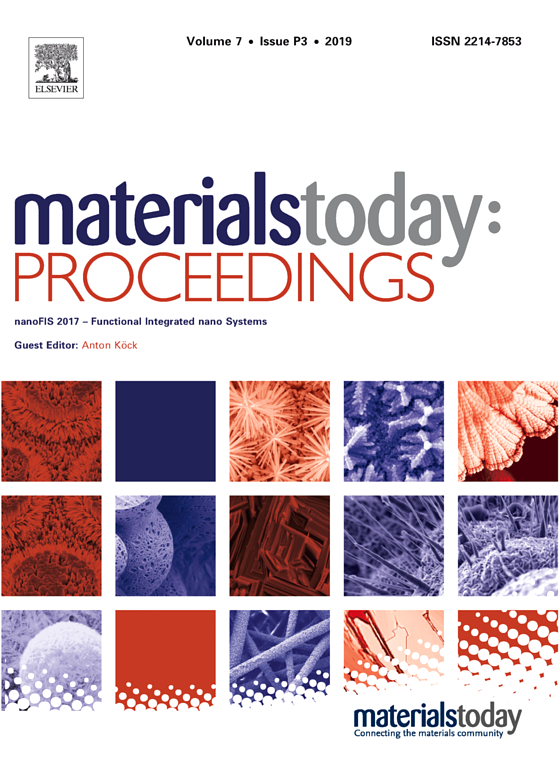ELife Won't Get an Impact Factor, Says Clarivate
Clarivate has decided to continue indexing some content from eLife in Web of Science.

Send us a link
Clarivate has decided to continue indexing some content from eLife in Web of Science.

Some journal articles on the Taylor & Francis website now bear a pop-up notification stating the papers are "currently under investigation."

Retractions are the stuff of nightmares for most academics. But they aren't necessarily a career obstacle, and sometimes may be the only way forward, according to Andrew P. Anderson.
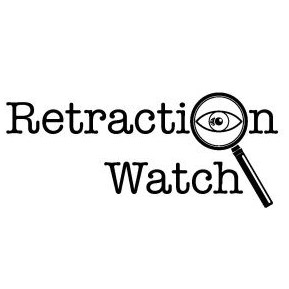
Predatory journals - even the term is controversial - have been a vexing problem for many years, and have certainly been a subject of coverage at Retraction Watch and elsewhere.

Cartoon by Hilda Bastian (license) A total of 436 papers in two Springer Nature journals are being subjected to expressions of concern, in the latest case of special issues - in this case, "t…
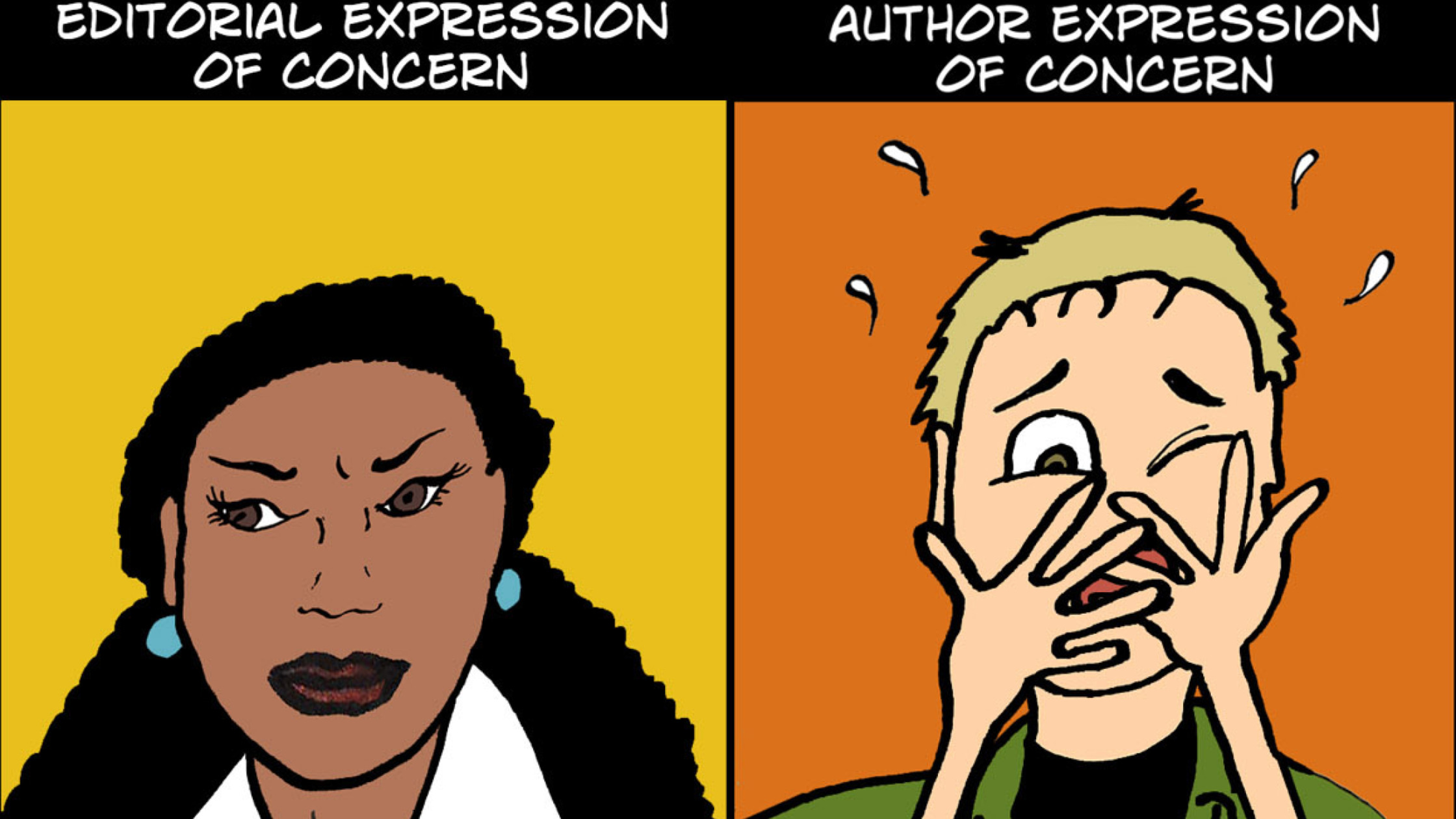
At the risk of breaking the Fourth Wall, here's a story about peer reviews that weren't - and shouldn't have been.

A preprint promoted by a member of the UK Parliament for claiming to show that vitamin D led to an “80% reduction in need for ICU and a 60% reduction in deaths” has been removed from a server used by The Lancet family of journals.
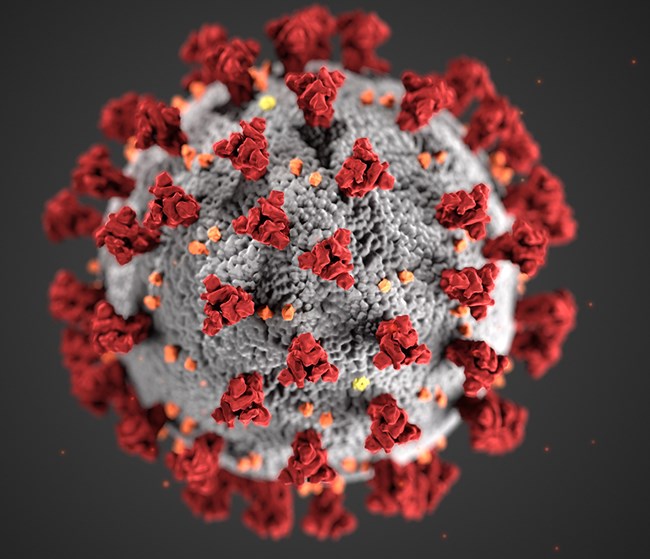

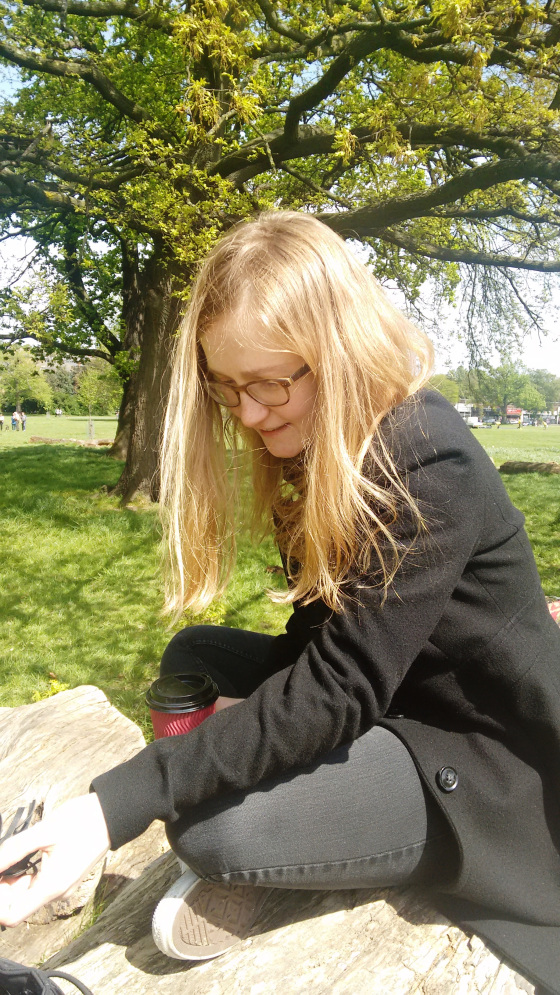
Science has issued an expression of concern for a paper it published earlier this summer after readers pointed out suspect images in the work.
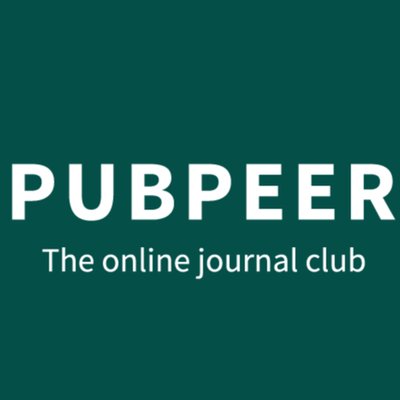
A legal journal has retracted a 2019 article on the facial genetics of ethnic minorities in China for ethics violations. Springer Nature is investigating more than two dozen other articles for similar concerns.

Retraction Watch looks back at some lessons learned.
Via Wikimedia A journal has allowed a geophysicist who cited his own work hundreds of times across 10 papers to retract the articles and republish them with a fraction of the self-citations.
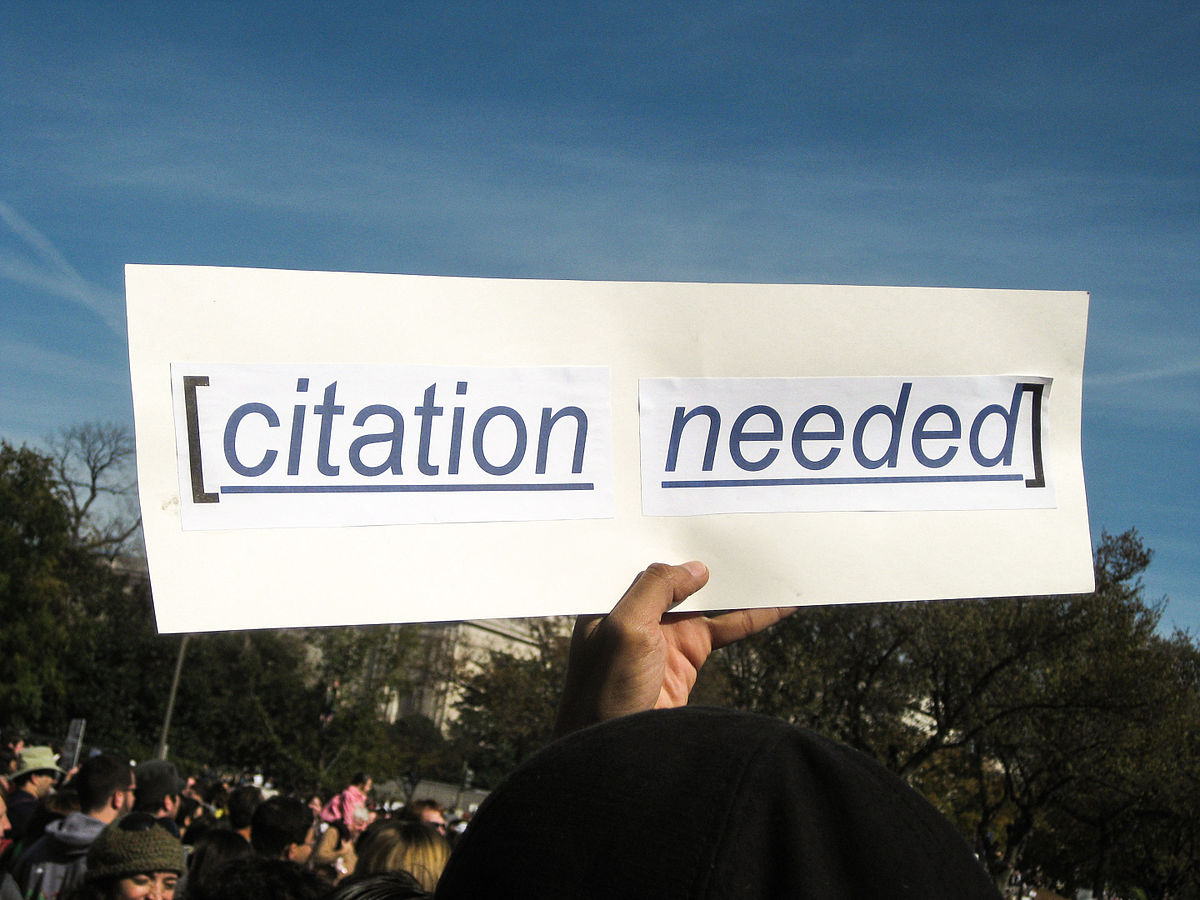
Nature has retracted a recent commentary after the author complained that he had been misled by the relationship of the publication to a financial sponsor and told to avoid critiquing work from the institution. The journal says it is revisiting its “editorial guidelines and processes” in the wake of the case.

At least two more journals are fighting decisions by Clarivate — the company behind the Impact Factor — to suppress them from the 2019 list of journals assigned a metric that many rightly or wrongly consider career-making.

Are impact factors manipulated by a large-scale practice of self-citation?

The authors of a preprint on use of hydroxychloroquine, the controversial drug heavily promoted by President Trump, have withdrawn the paper.

Before we present this week's Weekend Reads, a question: Do you enjoy our weekly roundup? If so, we could really use your help. Would you consider a tax-deductible donation to support Weekend Reads…

Scottish researchers have taken aim at a study reporting surprising findings on COVID-19 - but what it took to correct the record is all too familiar.

Retraction Watch has been tracking retractions of papers about COVID-19 as part of their database. Here's a running list, which will be updated as needed.

The paper that appears to have triggered the Trump administration’s obsession with hydroxychloroquine as a treatment for infection with the novel coronavirus has received a statement of concern from the society that publishes the journal in which the work appeared.

Hans Eysenck More than two dozen papers by a controversial psychologist who died in 1997 are "unsafe."

Carlos Lopez-Otin Nature is rescinding an award to a Spanish researcher whose group has at least nine retractions for problems with their published images.
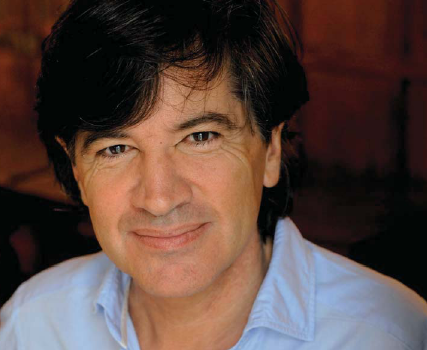
It's no secret that retractions have a stigma, which is very likely part of why authors often resist the move - even when honest error is involved.

SAGE Publishing is today retracting 22 articles by a materials science researcher who published in two of their journals - but the anonymous reader who brought the problems to their attention…
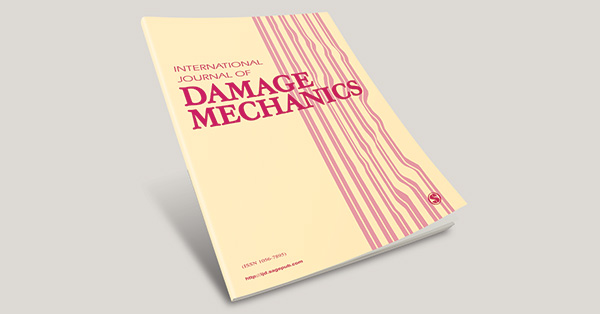
In the past month, PLOS ONE and Transplantation have retracted fifteen studies by authors in China because of suspicions that the authors may have used organs from executed prisoners.

Richard Lynn A former emeritus professor who has been called "one of the most unapologetic and raw 'scientific' racists operating today" has had one of his papers subjected to an expression of concern.
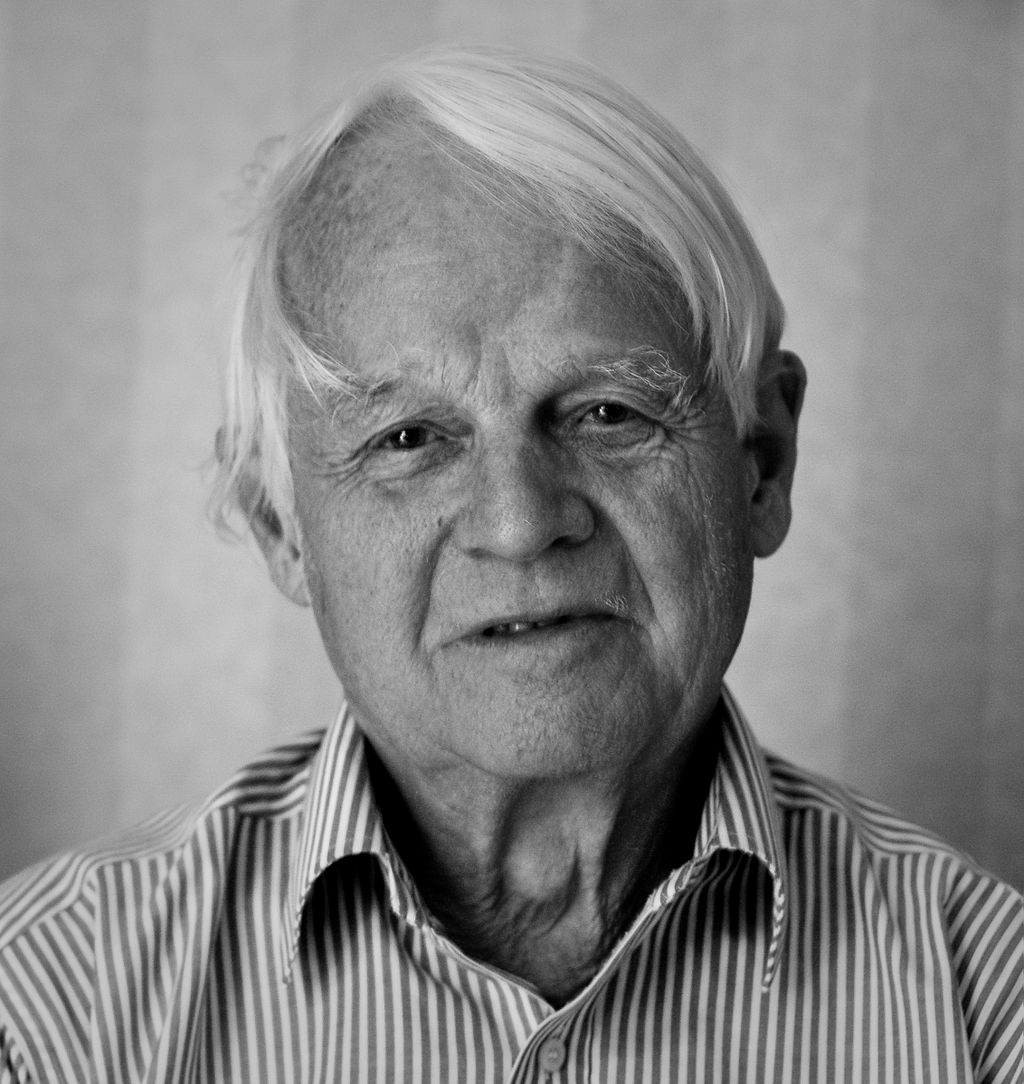
Elsevier is looking into how one of its journals published a paper which makes bizarre claims about the knowledge of the ancients.
